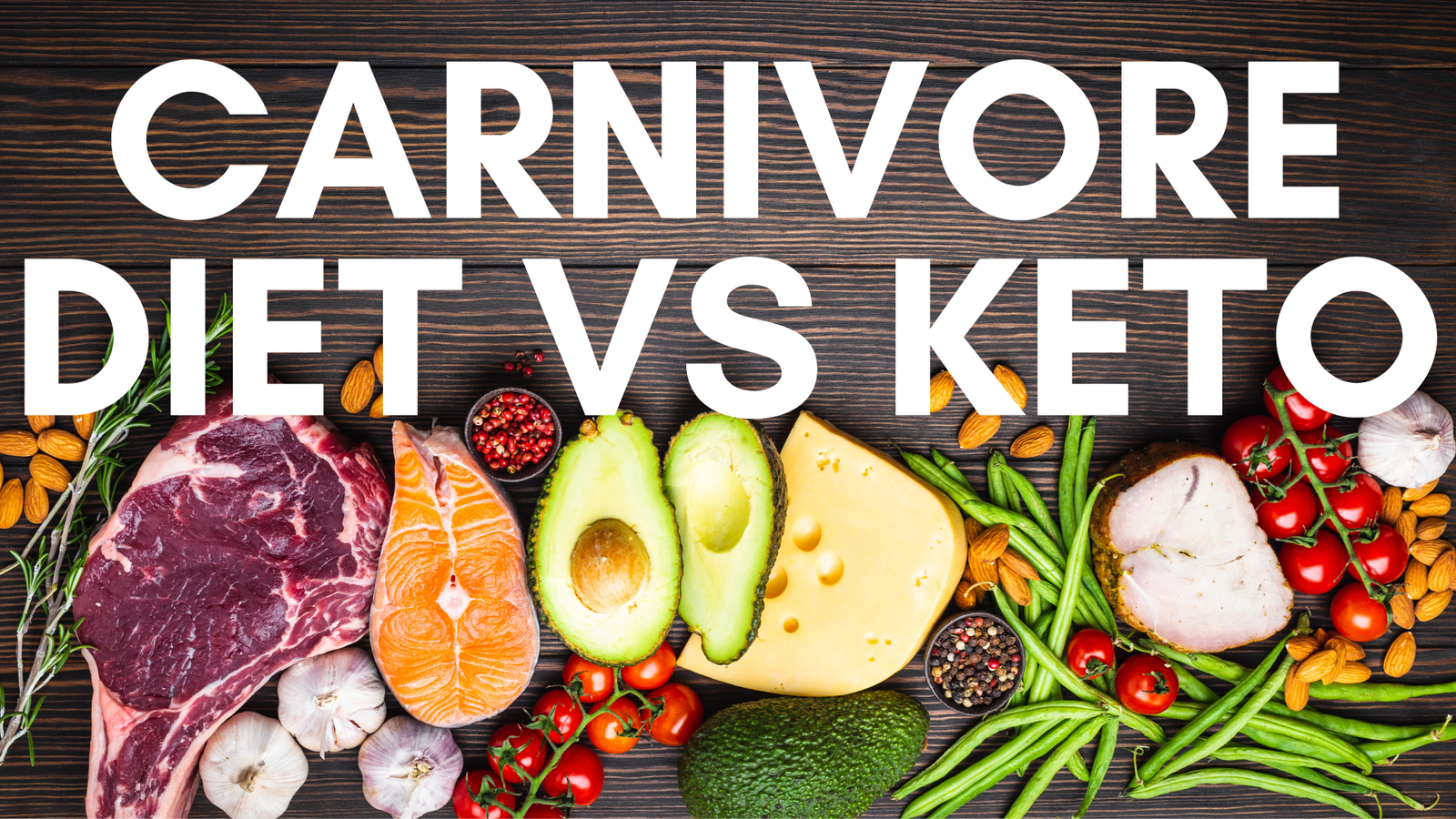In the evolving world of dietary trends, the “Carnivore Diet vs Keto” debate has garnered significant attention. Both diets have risen in popularity, each promising unique health benefits and lifestyle transformations. In this article we’ll delve into a comprehensive comparison of these two diets, examining their principles, health impacts, and overall sustainability.
Whether you’re considering a major dietary change or simply curious about these nutritional approaches, this article will provide valuable insights to help guide your decision. Join us as we explore the key differences and similarities between the Carnivore Diet and the Keto Diet, offering an informed perspective on each.
Table of Contents
Dietary Principles
When comparing the Carnivore Diet and Keto, it’s crucial to understand their core dietary principles. This understanding not only helps in making informed choices but also in effectively implementing these diets to achieve desired health goals.
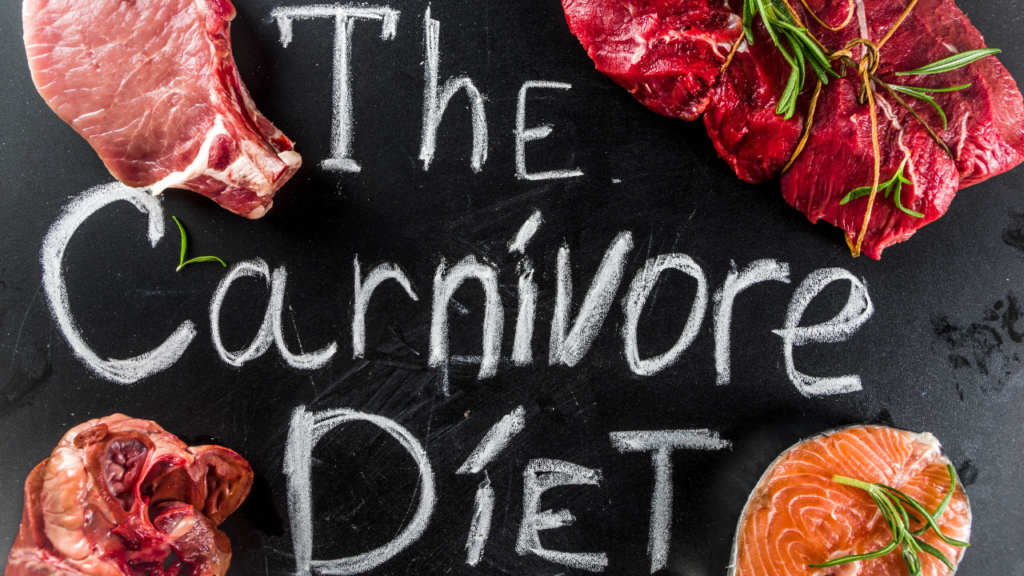
Carnivore Diet: The Carnivore Diet is straightforward in its approach: consume animal products exclusively, and avoid plant-based foods. This means a diet primarily composed of meat, fish, eggs, and certain dairy products. The focus is on high protein and fat intake, with virtually zero carbohydrates. The simplicity of this diet is one of its key appeals, as it doesn’t require much counting or tracking of macronutrients.
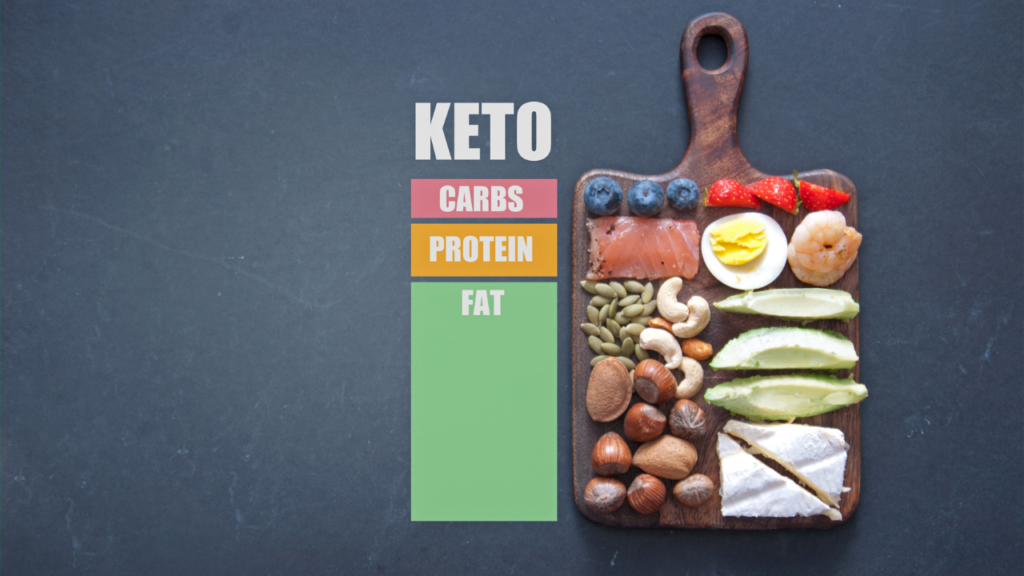
Keto Diet: The Keto Diet, on the other hand, emphasizes drastically reducing carbohydrate intake and replacing it with fat. This shift puts the body in a state of ketosis, where fat, rather than carbohydrates, is burned for energy. Unlike the Carnivore Diet, Keto allows for a broader range of food choices, including meat, fish, eggs, certain dairy products, nuts, seeds, and low-carb vegetables. The key principle is to maintain a specific macronutrient ratio: high fat, moderate protein, and very low carbohydrate.
Comparing Principles: Both diets limit carbohydrate intake, but the Carnivore Diet takes this to an extreme by eliminating them entirely. Keto focuses more on the balance of macronutrients to achieve ketosis. The Carnivore Diet’s simplicity in food choices contrasts with Keto’s slightly more diverse options, which might include keto-friendly desserts or snacks.
Macronutrient Composition
Understanding the macronutrient composition is pivotal in distinguishing the Carnivore Diet from the Keto Diet. Focusing on “Carnivore Diet vs Keto”, we’ll discuss next how each diet allocates fats, proteins, and carbohydrates, the three primary macronutrients in our diet.
Carnivore Diet Macronutrients: The Carnivore Diet is characterized by a high intake of proteins and fats, with an almost non-existent carbohydrate count. Protein sources include meat, fish, and eggs, while fats are obtained from these foods and selected dairy products like cheese and butter. The absence of carbohydrates is a defining feature, making it unique among high-protein diets.
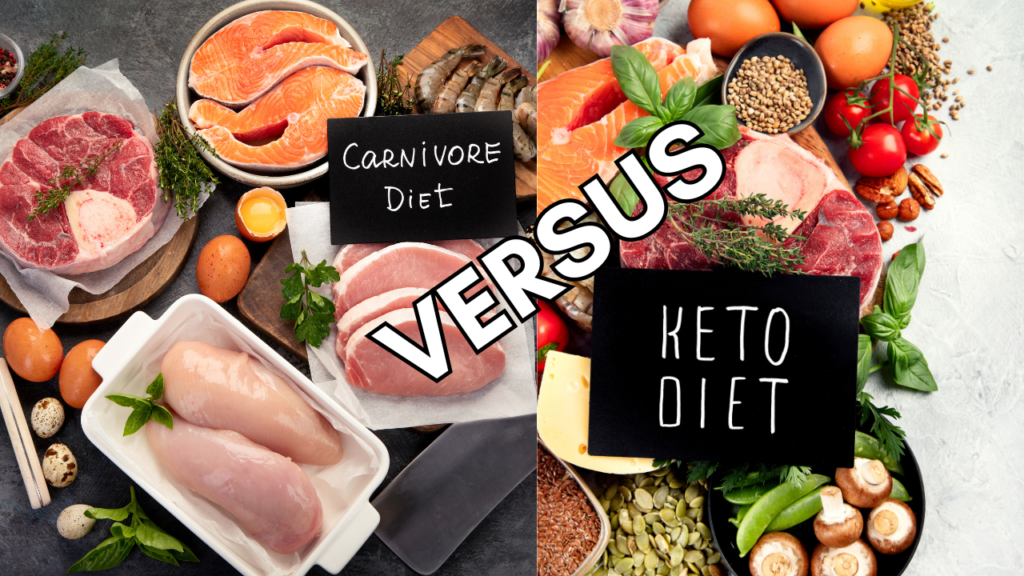
Keto Diet Macronutrients: The Keto Diet, while also low in carbohydrates, has a distinctive macronutrient balance. It requires high fat intake, moderate protein, and very low carbohydrates, typically limiting carbs to 20-50 grams per day. This distribution aims to induce ketosis, a metabolic state where the body utilizes fat for energy instead of carbohydrates. The fat in a Keto Diet comes from sources like avocados, oils, nuts, and fatty meats, while proteins are moderately consumed.
Contrasting the Two: The main difference lies in protein and fat ratios. The Carnivore Diet is heavier in protein, whereas the Keto Diet emphasizes more on fats with controlled protein to maintain ketosis. Both diets are low in carbohydrates, but the Keto Diet includes some, primarily from vegetables and nuts, which are absent in the Carnivore Diet.
Food Varieties
When comparing the “Carnivore Diet vs Keto,” the variety of foods each diet allows is a key differentiator. Now we’ll explore the types of foods that are central to each diet, providing a clear understanding of what you can eat on each.
Carnivore Diet Food Choices: The Carnivore Diet is remarkably straightforward in its food selection: it strictly includes animal products. Key staples are meats of all kinds, including beef (preferable grass-fed and grass-finished), chicken (preferably free range and organic), pork (preferably organic), and fish (preferably wild caught and not farmed). Organ meats like liver and kidney are also encouraged due to their nutrient density. Eggs and certain dairy products, such as cheese and butter, round out the diet’s offerings. There’s no room for fruits, vegetables, nuts, seeds, or grains in this diet.
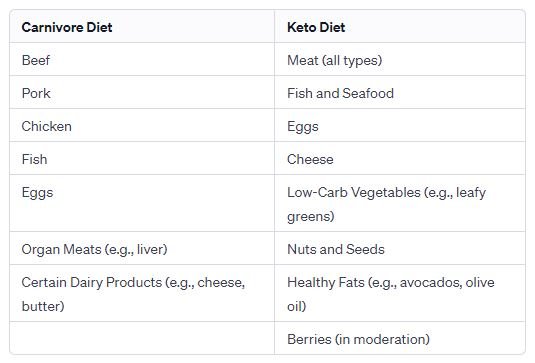
Keto Diet Food Choices: The Keto Diet offers a broader palette. While it also includes meat and dairy (same organic preferences), it integrates a variety of other foods. Essential to the Keto Diet are low-carb vegetables like spinach, kale, and broccoli, which provide necessary nutrients and fiber. Nuts, seeds, and some fruits (mostly berries) are also included. Keto-friendly flours, such as almond and coconut flour, allow for more diverse meal preparations, including baked goods that comply with the diet’s low-carb mandate.

Contrasting the Two: The primary contrast lies in the inclusion of plant-based foods. The Carnivore Diet is exclusive to animal products, whereas the Keto Diet accommodates a more balanced array of food groups, including vegetables, nuts, and limited fruits.
Both lifestyles avoid seed oils as they are high in omega 6 linoleic acid and can cause significant inflammation. Preferably, use beef tallow and avocado oil for high heat cooking, grass fed butter or olive oil for low heat cooking and olive oil for drizzling on meat and salad.
Health Benefits
Exploring the health benefits is a crucial aspect of comparing “Carnivore Diet vs Keto.” Both diets have unique advantages that cater to different health goals and needs.
Carnivore Diet Health Benefits: The Carnivore Diet, with its high intake of animal proteins and fats, offers several health benefits. Proponents of the diet report improved digestive health due to the elimination of plant fibers and carbohydrates. There’s also evidence suggesting benefits in weight loss, reduced inflammation, and enhanced mental clarity. Additionally, the high protein content can be advantageous for muscle building and maintenance.

Keto Diet Health Benefits: The Keto Diet is renowned for its effectiveness in weight loss, primarily due to the state of ketosis, which optimizes fat burning. Beyond weight loss, it’s associated with improved blood sugar control, making it a potential dietary approach for managing diabetes. The diet may also contribute to improved heart health due to the high intake of healthy fats, and some individuals report enhanced mental focus and energy levels.
Comparing the Benefits: While both diets are effective for weight loss and improved metabolic health, the Keto Diet’s inclusion of plant-based foods provides a broader spectrum of nutrients. This can lead to more balanced overall health benefits. In contrast, the Carnivore Diet’s zero-carb approach may be more suitable for those seeking digestive health improvements and a straightforward dietary regimen.
Risks and Considerations
When evaluating “Carnivore Diet vs Keto,” it’s crucial to address the potential risks and considerations associated with each diet. This section provides an informative and straightforward overview of the factors one should be mindful of before adopting either diet.
Carnivore Diet Risks and Considerations: The Carnivore Diet, while simple and potentially beneficial for certain health goals, poses several risks. The most significant is the potential for nutritional deficiencies, especially in vitamins and minerals typically found in plant-based foods, like Vitamin C and fiber. There’s also the concern of high saturated fat intake, which may impact heart health, although this is subject to ongoing debate in the nutrition community. Furthermore, the exclusion of carbohydrates can lead to short-term side effects like fatigue, headaches, and constipation, commonly known as the “keto flu.”

Keto Diet Risks and Considerations: The Keto Diet, despite its popularity, is not without risks. Maintaining a state of ketosis requires strict adherence to macronutrient ratios, which can be challenging and unsustainable for some. There’s a risk of nutrient deficiencies if the diet is not well-planned, particularly in terms of fiber and certain vitamins. The diet may also exacerbate existing kidney problems due to the increased workload from processing protein and fats. Additionally, the initial phase of the diet can lead to the “keto flu,” with symptoms like nausea, dizziness, and fatigue.
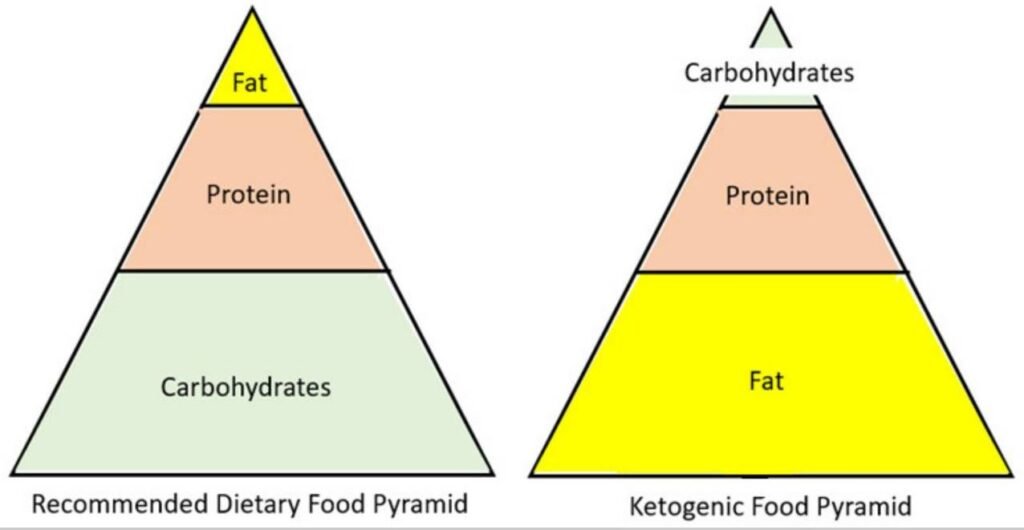
Comparing the Risks: Both diets require careful consideration to avoid nutritional deficiencies. The Carnivore Diet’s lack of plant-based nutrients contrasts with the Keto Diet, which allows for a more varied intake but requires careful macronutrient management. It’s important for individuals considering these diets to consult healthcare professionals, especially those with pre-existing health conditions.
Impact on Physical Performance
Evaluating the “Carnivore Diet vs Keto” in terms of their impact on physical performance is essential, especially for athletes or those with an active lifestyle.
Carnivore Diet and Physical Performance: The Carnivore Diet’s high protein intake is beneficial for muscle building and repair, which is crucial for anyone engaged in regular strength training. However, the absence of carbohydrates – a primary energy source for high-intensity activities – might initially lead to reduced endurance and energy levels. Over time, some individuals may adapt to using fats more efficiently for energy, but this can vary greatly from person to person.
Some on the carnivore diet have added berries to help offset the loss of energy if they’ve run into difficulty transitioning to fats for fuel. This moves away from a strict carnivore practice but with any lifestyle, it is best to tailor it to fit within your specific needs depending on your level of physical activity.

Keto Diet and Physical Performance: The Keto Diet is known for its ability to stabilize energy levels, reducing the spikes and crashes often associated with high-carb diets. This can be advantageous for endurance sports. However, the transition period into ketosis can temporarily impact performance, as the body adjusts to using fat instead of carbohydrates for fuel. Once adapted, individuals often report sustained energy levels, which can be beneficial for prolonged physical activities.
For long distance endurance athletes, some individuals have added small portions of potatoes and other fruits (such as apples and pears) to tailor the keto diet to fit their lifestyle. There is no need to be completely rigid with this system to reap the massive benefits, the most important thing is to use the principles to make it work for your specific situation.
Comparing the Two: When comparing the impact on physical performance between the “Carnivore Diet vs Keto,” it’s important to note the potential for flexibility within each diet to support the varying energy requirements of different athletes. While the Carnivore Diet is primarily focused on animal products, some athletes might introduce minimal amounts of certain fruits like berries or even small portions of potatoes to meet higher energy demands, especially in high-intensity sports. This adaptation, though not strictly within the traditional framework of the diet, can provide necessary carbohydrates for energy.
Similarly, the Keto Diet, known for its low-carb approach, does allow for some inclusion of carbohydrates in the form of berries, other low-glycemic fruits, and vegetables like potatoes, particularly for athletes. This flexibility can be crucial for those engaging in more strenuous activities, as it provides a readily available energy source while still maintaining the overall principles of the diet.
In both “Carnivore Diet vs Keto,” the key is to balance the core principles of the diet with the individual energy needs of the athlete. This customization ensures that the dietary approach supports their specific activity levels and performance goals, making each diet adaptable to a wider range of physical demands.
Scientific Evidence and Studies
In the debate of “Carnivore Diet vs Keto,” examining the scientific evidence and studies behind each diet is crucial for an informed perspective.
Carnivore Diet Scientific Evidence: The Carnivore Diet, being relatively new in the realm of popular diets, has limited direct scientific studies. However, research on diets high in protein and low in carbohydrates can offer some insights. Studies suggest that high protein intake can be beneficial for weight loss, muscle mass retention, and satiety.
There is one major recent study published December 2021, which directly references the carnivore diet and concluded, “contrary to common expectations, adults consuming a carnivore diet experienced few adverse effects and instead reported health benefits and high satisfaction.”
However, due to the lack of extensive scientific studies specifically on this diet, some insights can be drawn from other studies on diets high in protein and low in carbohydrates. For instance:
- High Protein Diets and Satiety: A study in the “American Journal of Clinical Nutrition” (Weigle et al., 2005) showed that high-protein diets can lead to reduced calorie intake due to increased satiety.
- Low Carbohydrate Diets and Health Outcomes: Research by Yancy et al. (2004), published in “Annals of Internal Medicine,” examining low carbohydrate diets (not exclusively carnivore) indicated improvements in body weight and certain metabolic markers.
Keto Diet Scientific Evidence: The Keto Diet has been more extensively studied, particularly in the context of weight loss and managing epilepsy. Research indicates that the Keto Diet can be effective for rapid weight loss and improving markers of metabolic health, such as blood sugar and cholesterol levels. It’s also well-documented in its therapeutic effects on reducing the frequency of seizures in epileptic patients.
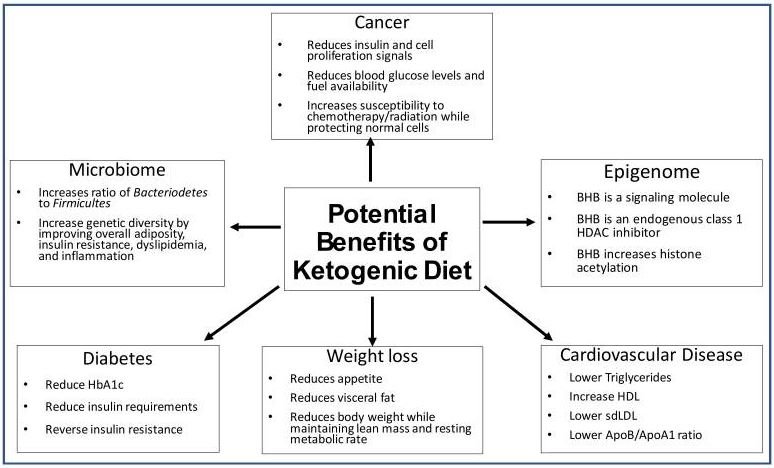
For the Keto Diet, specific studies can be cited:
- The Potential Health Benefits of the Ketogenic Diet: A Narrative Review: A study published in the “National Library of Medicine” (May 13,2021) demonstrated that a keto diet has helped patients with diabetes reduce their HbA1c and reduce the need for insulin and evidence also suggests that eating a high-fat diet improves lipid profiles by lowering low-density lipoprotein (LDL), increasing high-density lipoprotein (HDL), and lowering triglycerides (TG)
- Weight Loss and Metabolic Health: A study published in the journal “Nutrition & Metabolism” (Volek et al., 2004) demonstrated that a ketogenic diet can result in significant weight loss and improved triglyceride levels.
Comparing the Two: Both diets demonstrate benefits in weight management and metabolic health improvement in the short term. The Keto Diet, with its broader body of research, offers a more scientifically-backed approach. In contrast, the Carnivore Diet, while showing potential benefits, still lacks extensive scientific study and validation.
Cost Comparison
A practical aspect of the “Carnivore Diet vs Keto” discussion involves comparing the cost of adhering to each diet. This section aims to provide a straightforward analysis of the financial implications of following either diet.
Carnivore Diet Cost Considerations: The Carnivore Diet primarily consists of meat, fish, eggs, and some dairy products. The cost can vary significantly based on the types of meats chosen (e.g., grass-fed beef is typically more expensive than grain-fed) and the source of the products (local butcher vs. supermarket). Since the diet is exclusively animal-based, there’s little spending on fruits, vegetables, grains, or processed foods, which can offset some of the costs. However, a diet consisting largely of high-quality meats can be more expensive than a more varied diet that includes plant-based foods.
Keto Diet Cost Considerations: The Keto Diet requires a variety of food items including meats, fats (like oils and avocados), low-carb vegetables, nuts, and seeds. Specialty keto products, such as sugar substitutes and low-carb flours, can add to the cost. While the diet includes more expensive items like meat and cheese, the inclusion of vegetables and other plant-based foods can provide more flexibility to balance the overall cost. Keto-friendly snacks and prepared foods, though convenient, can also increase the diet’s cost if relied upon regularly.
Comparing the Two: In comparing “Carnivore Diet vs Keto,” the Carnivore Diet may initially seem more expensive due to its heavy reliance on meat. However, the absence of processed foods and snacks can make it more cost-effective than it first appears. The Keto Diet, with its diverse food items, can be tailored to a wider range of budgets, but specialty items and keto substitutes may add to the overall expense.
Community and Support
When exploring “Carnivore Diet vs Keto,” the aspect of community and support plays a significant role in the success and sustainability of these diets.
Carnivore Diet Community and Support: The Carnivore Diet, while newer in the diet scene, has a growing community. Online forums, social media groups, and blogs are increasingly popular, where enthusiasts share experiences, recipes, and tips. A couple of excellent proponents of the carnivore diet are Dr. Paul Saladino and Dr. Shawn Baker.
The community support can be invaluable for beginners seeking advice or long-term adherents looking to share their journey. The diet’s simplicity also leads to straightforward advice and shared experiences, which can be especially encouraging for newcomers.
Keto Diet Community and Support: The Keto Diet boasts a large and well-established community, given its longer presence in the mainstream. There are numerous online resources, including websites, forums, social media groups, and countless blogs dedicated to the Keto lifestyle. This extensive community offers a wealth of information, from detailed meal plans to adaptations for various health needs. Additionally, the availability of keto-specific products and the diet’s popularity make it easier to find support and resources in both online and offline settings.

Comparing the Two: In comparing “Carnivore Diet vs Keto,” the Keto Diet has a more extensive support system due to its longer-standing presence and broader appeal. However, the Carnivore Diet’s community, though smaller, is noted for its passion and commitment, providing strong peer support. Both communities offer unique benefits, whether it’s the vast array of resources available to Keto dieters or the focused, shared experience within the Carnivore Diet community.
Personalization and Flexibility
In the comparison of “Carnivore Diet vs Keto,” understanding each diet’s capacity for personalization and flexibility is important for those considering which to adopt.
Carnivore Diet Personalization and Flexibility: The Carnivore Diet is inherently restrictive, focusing solely on animal products. This limitation means there’s less room for personalization in terms of food variety. However, within the animal product spectrum, individuals can choose from a range of meats, fish, and dairy, depending on personal taste and tolerance. The diet is less flexible when it comes to accommodating eating out or social dining situations, as it strictly excludes plant-based foods. For those with specific dietary preferences or restrictions, such as lean meats or dairy intolerance, the diet can be adjusted accordingly.
Keto Diet Personalization and Flexibility: The Keto Diet offers more flexibility and personalization due to its wider variety of acceptable foods. Individuals can tailor their diet to include a balance of animal products, low-carb vegetables, nuts, and seeds. This variety allows for more creativity in meal planning and makes it easier to adapt to different social and dining situations. The diet can also be modified to suit various dietary needs and preferences, such as vegetarian keto or dairy-free keto.
Comparing the Two: When comparing “Carnivore Diet vs Keto” in terms of flexibility, the Keto Diet stands out as the more adaptable option. Its variety of food groups allows for a more personalized approach, catering to different tastes and dietary needs. The Carnivore Diet’s simplicity offers less variety, but it can be appealing for those who prefer a more straightforward, no-frills approach to eating.
Conclusion and Recommendations
In concluding our comparison of the “Carnivore Diet vs Keto,” it’s clear that both diets have their unique attributes and potential benefits, along with specific considerations and challenges. Here are some recommendations to consider when choosing between these two dietary approaches:
- Assess Personal Health Goals: Your choice should align with your individual health objectives, whether it’s weight loss, improved metabolic health, or other specific needs.
- Consider Lifestyle and Preferences: The practicality of maintaining each diet based on your lifestyle, culinary preferences, and social eating habits is crucial. The Keto Diet may offer more variety and flexibility, while the Carnivore Diet appeals to those who prefer simplicity and are comfortable with a more restrictive approach.
- Consult Healthcare Professionals: Before starting either diet, especially if you have pre-existing health conditions, consult with a healthcare provider or a registered dietitian. They can provide personalized advice and ensure the diet aligns with your health needs.
- Listen to Your Body: Pay attention to how your body responds to the diet. What works for one person may not work for another. Adjustments might be necessary to find the right balance.
- Consider Nutritional Balance: Be mindful of potential nutritional deficiencies. Supplements may be necessary, particularly with the Carnivore Diet, to ensure a well-rounded intake of nutrients.
- Think Long-Term: Evaluate the sustainability of your chosen diet. A diet that can be adapted and maintained over time is more likely to lead to long-term success and health benefits.
- Stay Informed: As research evolves, so does our understanding of diet and nutrition. Stay informed about the latest studies and recommendations.
In summary, both the Carnivore Diet and Keto Diet offer unique approaches to nutrition and health, each with its own set of benefits and drawbacks. The decision to follow either should be based on thorough personal research, consideration of individual health needs, and professional guidance. Ultimately, the best diet is one that you can maintain healthily and happily in the long term.


